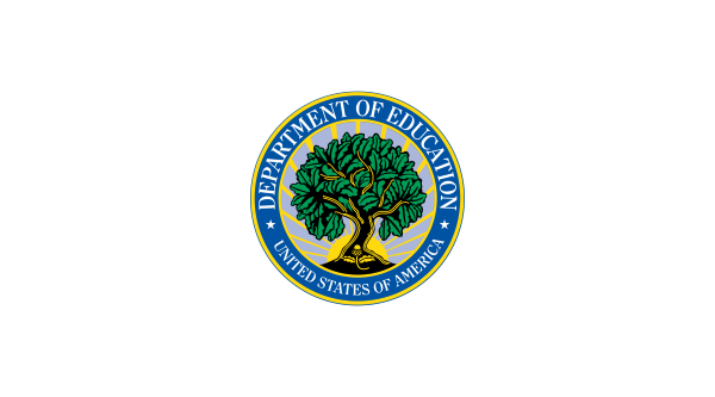Enabling Change
Free Advice for the New EdSec
Topics

Next generation learning is all about everyone in the system—from students through teachers to policymakers—taking charge of their own learning, development, and work. That doesn’t happen by forcing change through mandates and compliance. It happens by creating the environment and the equity of opportunity for everyone in the system to do their best possible work.
A change in the leadership of the U.S. Department of Education is here. Here's some advice for Secretary Cardona from a next gen ed leader on what states, schools, educators, and students really need.
[Disclaimer: In all of my posts, I speak for myself and not necessarily for my school. But that is especially true in this case.]
The election of Joe Biden will bring major change to the leadership of the U.S. Department of Education. I have no idea who will be named to the post, and I am confident that no one in a decision-making capacity will seek my opinion on the matter. It’s also true that the federal role in education is comparatively weak, and whatever our pretensions about the role of education in curing all that ails the U.S., its success or failure is more of a decentralized phenomenon. Nevertheless, I find myself thinking quite a bit about what, as an educator-leader, I would want from the next administration.
With the exception of my opposition to school voucher programs, I don’t fall cleanly into the camps that have formed around education policy in recent years. The Workshop School, of which I am a co-founder, is a school of choice inside a large urban school district with a union workforce. I believe that families and students should have a say in where kids are educated and that one size doesn’t fit all, while acknowledging that those systems create profound equity concerns that we need to get better at addressing. I believe that teachers unions can and should be a force for positive change for students and families, while acknowledging that in many instances they have thwarted reform and put adults’ interests ahead of students. I believe that if it weren’t for standardized test data, the glaring disparities in the educational experiences of low-income Black and Brown children and their more affluent White peers would not have penetrated the public consciousness. I also strongly believe that we made a tragic error in deciding that such testing systems were not merely a way to define a problem but a way to solve it, and that we have yet to recover from this mistake.
All of which is to say that while I have a definite point of view, I’m not batting for either team here. With that preamble, I humbly offer the following advice for our next Secretary of Education:
- Empower the Office of Civil Rights to do its job. I wish this was a non-controversial thing to say. It is, however, obvious. So let’s keep it moving, shall we?
- Be as “evidence based” as the evidence allows. There are certain things, like how to teach reading to little kids, that we know a whole lot about. In those instances, schools and districts should be focused on getting folks to do it right. There are other things, like how to effectively prepare high school students for adulthood, where our understanding is murky and lessons learned are tentative. In these instances, we should be learning from the field rather than dictating to it. When setting and implementing policy, the department should be clear-eyed and grounded about which side of that evidence line it is on.
- Invest big but think small. The federal government can and should set priorities for school improvement and invest in those priorities. But its role should be to help states, districts/CMOs, and partner organizations become the best version of themselves, not clones of one another. Too often, federal investment (along with large-scale philanthropy) is accompanied by institutional arrogance and heavy-handedness that creates a lot of compliance theater and little meaningful change in practice.
- Be clear about what you plan to do less of. One reason so many reforms die is because they crash on the calcified sediment of the reforms that came before. School reform tends to be interventionist; we like to think of doing more without being clear about what we’ll do less of. As a result, districts, schools, and teachers endure wave after wave of mandates with little thought to what they all add up to. And too often, what they add up to is cynicism and resignation.
Additionally, we have a lot more evidence about what doesn’t work than what does, and it’s actually easier to stop doing something than to start something new and do it well. As I wrote a couple of months ago, when facing uncertainty you are much more likely to find what works if you are systematic in ruling out what doesn’t. - Prioritize growth and support at every level. States should serve districts/CMOs, which in turn should serve schools, which in turn should serve students and families. Yet very few systems actually operate this way. Instead, each level of the system is preoccupied with policing the level “below” it. The entire apparatus is punitive. It is striking that in an enterprise that is fundamentally human-centered we devalue people at every turn.
The federal government should incentivize (though it cannot mandate) accountability that focuses on growth and support rather than punishment. For students, that means shifting away from behaviorism and toward restorative practices and systems. For teachers, it means professional development focused on growth rather than dissemination and compliance. (If you think that point is obvious you haven’t spent much time in PD lately.) For leaders, it means centering teacher growth and support. For districts, it means seeing schools as clients they serve rather than subjects they rule. At every level of the system, we need to be focused on removing barriers and obstacles to success and supporting growth and learning. - Think beyond test scores. As I noted above, I think standardized tests have a place, but we’ve put them on the wrong side of the equation and weighted them far too heavily.
The ideal outcome of education could be described in a lot of ways, but however we define it that outcome must have currency. Maybe it’s success in higher levels of education or at work. Maybe it’s citizenship or happiness. A test score is none of those things, yet we have positioned it as a stand-in for any and all of them. At best, test scores are one of a series of variables that may predict real outcomes, but in most instances they aren’t even very good at doing that. We need a rebalancing here.
Proponents of equity and accountability understandably worry that if we put standardized testing back in its place we will have nothing to replace it, and we will go back to turning a blind eye to equity. Our history suggests that our country seldom misses a chance to put its head in the sand when it comes to these concerns. For this reason, one of the more audacious efforts I would love to see the department lead is an effort to build more robust indices of student success. Holding schools accountable is fine, but hold them accountable to something that’s real.
Image at top: Original seal by the U.S. Army Heraldry Directorate, Public domain, via Wikimedia Commons




